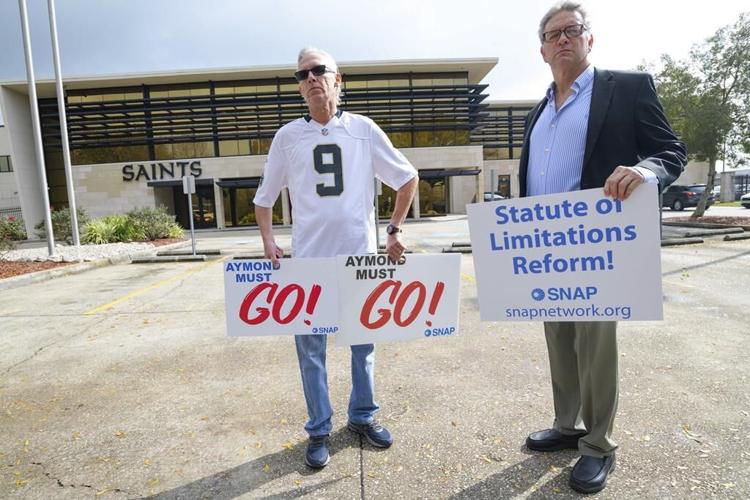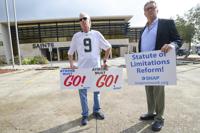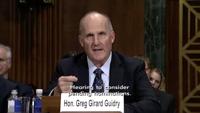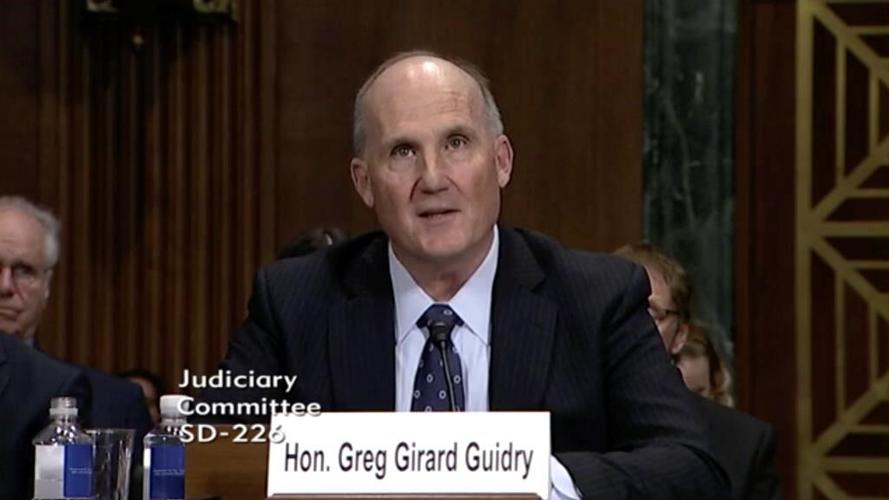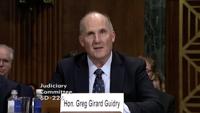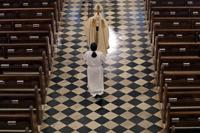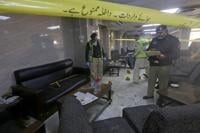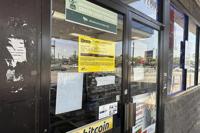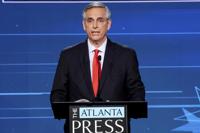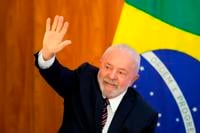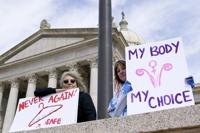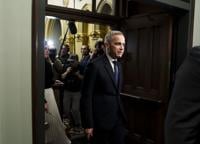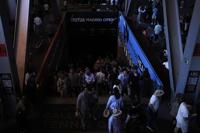A federal judge overseeing the New Orleans Roman Catholic bankruptcy recused himself in a late-night reversal that came a week after an Associated Press report showed he donated tens of thousands of dollars to the archdiocese and consistently ruled in favor of the church in the case involving nearly 500 clergy sex abuse victims.
U.S. District Judge Greg Guidry initially announced hours after the that he would stay on the case, citing the opinion of fellow federal judges that no “reasonable person” could question his impartiality. But amid mounting pressure and persistent questions, he changed course late Friday in a terse, one-page filing.
“I have decided to recuse myself from this matter in order to avoid any possible appearance of personal bias or prejudice,” Guidry wrote.
The 62-year-old jurist has overseen the 3-year-old bankruptcy in an appellate role, and his recusal is likely to throw the case into disarray and trigger new hearings and appeals of every consequential ruling he's made.
But legal experts say it was the only action to take under the circumstances, citing federal law that calls on judges to step aside in any proceeding in which their "impartiality might reasonably be questioned.”
“This was a clear and blatant conflict that existed for some time,” said Joel Friedman, a longtime legal analyst in New Orleans who is now a law professor at Arizona State University. “It creates the exact problem the rules are designed to avoid, the impression to the public that he’s not an impartial decisionmaker."
Guidry's recusal underscores how tightly woven the church is in the city’s power structure, a coziness perhaps best exemplified when executives of the NFL’s New Orleans Saints the archdiocese on public relations messaging at the height of its clergy abuse crisis.
AP's review of campaign-finance records showed that Guidry, since being nominated to the federal bench in 2019 by then-President Donald Trump, gave nearly $50,000 to local Catholic charities from leftover political contributions from his decade serving as a Louisiana Supreme Court justice. Most of that giving, $36,000, came in the months after the archdiocese sought Chapter 11 bankruptcy protection in May 2020 amid a crush of sexual abuse lawsuits.
Guidry also served on the board of Catholic Charities, the archdiocese’s charitable arm, between 2000 and 2008, as the archdiocese was navigating an earlier wave of sex abuse lawsuits.
In the bankruptcy, Guidry frequently issued key rulings that altered the momentum of the bankruptcy and benefited the archdiocese.
Just last month, he upheld a $400,000 sanction against Richard Trahant, a veteran attorney for clergy abuse victims who was accused of violating a sweeping confidentiality order when he warned a local principal that his school had hired a priest who admitted to sex abuse. He also rebuffed at least one request to unseal , part of a trove of records detailing clergy abuse in New Orleans going back decades.
Guidry referred the potential conflict to the Washington-based Committee on Codes of Conduct, which noted that none of the charities he donated to “has been or is an actual party” in the bankruptcy.
It also noted that Guidry’s eight years on the board of Catholic Charities ended more than a decade before the bankruptcy and that his church contributions amounted to less than 25% of the campaign funds he had available to donate.
“Based upon that advice and based upon my certainty that I can be fair and impartial, I have decided not to recuse myself,” Guidry told attorneys in the case on April 21.
But it was not clear what details Guidry shared with the committee, and he refused to release its advisory opinion. The opinion also raised eyebrows because one of the judges Guidry consulted on the potential conflict, Jennifer Walker Elrod, is scheduled to hear an appeal from the bankruptcy next week for the 5th U.S. Circuit Court of Appeals.
“We have no reason to rely on this secret opinion because we have no idea what the analysis is,” said Kathleen Clark, a legal ethics professor at Washington University in St. Louis, adding it was “utterly reasonable to question Guidry’s ability to be impartial under these circumstances.”
“The public shouldn’t have to rely on a judge’s personal certainty about his own rectitude,” Clark added. “The fact that he would even make this assertion shows how misguided and ethically blind this judge is.”
Charles Hall, a spokesman for the Administrative Office of the U.S. Courts, said Guidry had no comment beyond the recusal order.
James Adams, a creditor in the bankruptcy who alleges he was abused by a priest as a fifth grader in 1980, says the judge’s recusal was long overdue.
“Like the church, some federal judges will often do the right thing only after the press begins to investigate and question them,” he said. “Inflated ego and arrogance can be a dangerous side effect of putting on a black robe.”
___
Mustian reported from New York. Contact AP’s global investigative team at Investigative@ap.org.

